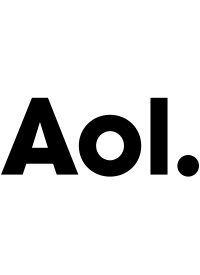
In a clear case of having more dollars than sense, America Online (AOL) is undertaking its least palatable acquisition to date: Arianna Huffington’s amalgam of left-wing screeds, The Huffington Post. Ironically, what some might view as a website with a less than favorable view of capitalism went for a king’s ransom of $315 million.
One veteran media watchdog, Brent Bozell, was rather unamused by news of the AOL-Huffington Post merger. A story from Bozell’s own news outlet, CNSNews.com, offered his evaluation of the corporate psychology over in the AOL bunker:
This proves AOL News has lost its mind. They must be in such dire straits that they’ve been blinded by the millions and think an acquisition of The Huffington Post is worth sacrificing credibility and objectivity. AOL News is fooling only itself in thinking there is no journalistic conflict in merging with a hate-filled, vicious, radically left-wing rag.
If there is an “up” side to the story for AOL, it is in the category of reminding denizens of the Internet that their grandfather’s ISP is still alive and kicking. But news for AOL has been less than sanguine for some time now; in 2010, the company watched its revenue slide by 26 percent. As MediaWeek reported on February 3:
In 2010 AOL brought in $2.4bn (£1.5bn) total revenue compared to $3.2bn (£2bn) in 2009. The company reported a net loss of $782.5m for 2010 compared to a profit of $248.5m the year before.
However the company was profitable in the final quarter, pulling in $66.2m net income compared to just $1.4m for the last three months of 2009. AOL attributed this Q4 profit to reduced costs compared to the same period in 2009, “as operating costs including restructuring costs declined $259.3m year-over-year.”
In 2010 advertising revenue dropped from $1.7 bn in 2009 to $1.3 bn, which also translated to a drop of 26% year on year. Comparing the final quarters of 2010 and 2009, advertising revenue declined by $137m.
One might wonder why a company which apparently lost three-quarters of a billion dollars last year would pay $315 million — $300 million of which was reportedly in cash — to join itself to the sort of folks who write for The Huffington Post. As Bozell is quick to point out, the Post is not even in the same area code as the mainstream:
Let’s do a quick review of The Huffington Post. Our “Huffington’s House of Horrors” Special Report revealed beyond a shadow of a doubt the ongoing campaign of profanity, crude sexual and excretory metaphors and outright hate speech against conservatives, all under the leadership of Arianna Huffington.
In fact, just last month, Huffington’s site published a man saying the next “Great American Story” would be Dick Cheney receiving a heart transplant from a brain-dead American soldier from Iraq, possibly causing “the heart to implode knowing it was trapped inside Dick Cheney.” … We can only assume that AOL News has been infected with the same vicious motive: to target and obscenely smear conservatives. They can do that if they want, of course, but please don’t call it AOL “News.” That’s now become an insult.
Not surprisingly, Arianna Huffington has a rather different take on the acquisition, and has been quoted as saying, “You know I’ve written a lot about how often media companies just are not willing to disrupt themselves, are not willing to make the bold moves until it’s too late.” Sorry, Arianna, but this is not a “bold” move — it’s one which is more in the “desperate” category.
AOL has been in a steady downhill slide for years, until it appears to have reached the point of falling into obscurity. Thus, for example, as search engines for Google, Yahoo and Bing accounted for approximately 94 percent of the 18.2 billion monthly Internet searches in December of last year, AOL cratered at a historic low of 1.9 percent, which places its popularity somewhere just above the card catalogs of antiquity (which, from the perspective of the Googling masses, was sometime in the 1980s — when AOL was born).
Undeniably, AOL’s acquisition of The Huffington Post has been quite profitable for the recipients of the Internet giant’s largesse, and has undoubtedly elicited groans from neoconservatives who remember that the mightiest dingy in their fleet, the Weekly Standard, traded hands in 2009 for one-third of one percent of the Post’s price: $1 million. At that time, the sale of the Weekly Standard attracted its own brief flurry of attention and speculation. But Chronicles editor Thomas Fleming’s observations not long after that acquisition best captured the reality of the actual worth of the media outlet which was in question:
Allegedly, Murdoch sold the magazine for $1 million to Phillip Anschutz, the billionaire owner of The Clarity Media Group. I say allegedly because the price is either much too high or much too low. Too high, because only a fool would pay so much money for a property that does nothing but lose money without adding a glimmer of insight to political discussion in America. Too low, because if The Weekly Standard actually did enjoy the influence that its editors have been so loudly and insistently claiming, $50 million would not be nearly enough. …
For Anschutz, a million is the equivalent of the buck it takes to seal a contract. It’s a rich man’s walking around money, in other words chump change. If you listen to Frum, Kristol, and Barnes, though, TWS has been the brains of the American Empire, but it went on the block for a lousy million. Some brains! Some empire!
With the transition from print to electronic media, the relative fungibility of various news/opinion sites becomes ever more apparent; the lamestream media have been replaced by websites which are well-trafficked. Their true value — a estimation of sense, not dollars — is not something which can be bought and sold.



